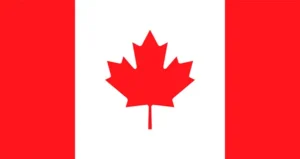Key Takeaways
- In England & Wales, it is generally legal to record a phone call if you are a participant for personal use. However, sharing or using that recording in other contexts without consent can breach the law.
- One-party consent applies to personal calls, but for business purposes, all parties must be informed. Businesses must comply with the Data Protection Act 2018 and UK GDPR.
- Failing to secure the right consent for business call recordings can trigger serious legal consequences, including ICO fines and the inability to rely on the recordings as evidence.
- A compliant privacy notice is essential for business call recordings. It must explain the lawful basis, purpose, and retention period to meet both GDPR and telecommunications requirements.
- Mishandling recordings or failing to obtain explicit consent can lead to disputes, regulatory investigations, and significant financial penalties.
- Using up-to-date consent scripts and privacy notices helps ensure your call recording process is legal and builds trust with customers.
- Go-Legal AI is rated Excellent on Trustpilot with over 170 five-star reviews from real users.
Quick Answer: Is It Legal to Record Phone Calls in the UK?
Many founders and small business owners worry about breaking the law when recording phone calls. The consequences of incorrect consent or poor documentation can be severe—think fines, loss of crucial evidence, or even regulatory investigations.
In England & Wales, the legality of call recording depends on who is recording, the purpose of the recording, and how you handle consent and data privacy. This guide explains exactly when and how you can record calls legally, clarifies “one-party consent”, and gives you step-by-step advice to stay compliant with UK call recording laws.
You’ll find actionable checklists, model scripts, and practical tips—all designed for startups, founders, and SMEs. With Go-Legal AI’s platform, call recording compliance is straightforward and affordable.
Is It Legal to Record Phone Calls in the UK?
Yes, if you are part of the conversation, recording a phone call is legal for your own use. However, strict privacy and data processing rules apply when you use, share, or store the recording—especially for business.
The law clearly distinguishes between personal use (such as recording a call for your own records) and business usage (such as for training, monitoring, or compliance purposes). Business users face stricter consent and privacy obligations under GDPR and the Data Protection Act 2018.
If you need certainty about your call recording workflow, our instant compliance checker reviews your policy and provides actionable recommendations tailored to your business.
What Are the Key Laws on Recording Phone Calls in the UK?
Several key statutes regulate call recording in England & Wales:
- Data Protection Act 2018 (DPA) & UK GDPR: Protect individuals’ personal data, including voice recordings.
- Regulation of Investigatory Powers Act 2000 (RIPA): Restricts intercepting communications but allows recording if you are a party.
- Telecommunications (Lawful Business Practice) (Interception of Communications) Regulations 2000: Allows certain business call recording for specific, legitimate purposes.
These laws decide:
- When you must inform participants
- The purposes for which you can record
- How long you can keep recordings
- How call data is stored and shared
How Do GDPR, the Data Protection Act, and RIPA Affect Call Recording?
- GDPR & DPA 2018: Voice recordings containing personal data can only be processed if you have a lawful basis (like consent, a contract, or legitimate interest). You must also give clear, accessible privacy information.
- RIPA 2000: Recording as a participant is generally lawful. Recording someone else’s calls without being a party is illegal.
- Telecommunications Regulations 2000: Businesses may record calls for quality, training, or compliance, provided transparency and data protection rules are met.
Our platform generates GDPR-compliant scripts and privacy notices to help you get this right every time.
When Can You Legally Record Calls for Personal Use?
If you record a call for your personal use—and you are a participant—you do not need the other party’s explicit consent. But you must not share, publish, or use the recording in a way that breaches the other person’s rights or expectations of privacy.
Is One-Party Consent Allowed in the UK?
England & Wales allows one-party consent for personal recordings. As long as you are a participant in the conversation, you may record for your own lawful purposes. Recording conversations you are not part of, or distributing private recordings, is generally unlawful.
If your situation is complex, on-demand help from our legal experts can clarify the risks in minutes.
What Are the Rules for Recording Business Calls in the UK?
Businesses must meet stricter conditions. You must have a lawful basis (such as consent, contract, or legal obligation) for recording, clearly inform all participants at the start, and maintain robust privacy processes.
What Does ‘Explicit Consent’ Mean for Call Recording?
‘Explicit consent’ means getting a clear, specific agreement—verbally or in writing—from each person on the call, understanding they are being recorded and why. For clarity, script examples like: “This call is recorded for quality purposes, do you consent?” are best practice.
Do I Need a Privacy Notice for Call Recording?
Yes. For lawful processing under the DPA and GDPR, your privacy notice must include:
- The fact that calls are recorded
- Why the recording is taking place
- How recordings will be used and stored
- How long you will keep recordings
- Contact details for data requests
If you process recordings for more than one purpose (e.g., training and compliance), state each use clearly.
Our template builder lets you create compliant call scripts and privacy notices, minimising your risk in minutes.
Essential Steps to Record Phone Calls Legally and Stay GDPR Compliant
To record calls lawfully and confidently, follow these steps:
How to Get Consent: Scripts, Templates, and Best Practices
- State Your Intention Immediately: Inform all participants at the beginning: “This call is being recorded for training and monitoring purposes.”
- Ask for Direct Consent: For example: “Do you agree to this call being recorded?”
- Log or Record Consent: Save their response or capture it in your CRM for audit purposes.
- Supply a Privacy Statement: Provide your privacy policy URL or summarise your data practices in clear language.
Practical Script Example:
“Hello, this call is recorded for quality assurance. If you do not wish to be recorded, please let us know now. Do you consent to continuing?”
Step-by-Step Compliance Checklist for Call Recording UK
- Define the Purpose: Clarify the legitimate, explicit reason for recording.
- Draft a Clear Privacy Notice: Make it understandable for any caller.
- Obtain and Document Consent: Keep proper records to show how and when you obtained agreement.
- Secure Storage: Encrypt and restrict access to recordings.
- Set a Data Retention Policy: Only retain recordings for as long as necessary.
- Train Your Team: Make sure scripts and privacy notices are used correctly.
- Regularly Audit Your Approach: Policies and technologies change—review for compliance at least annually.
⚡ Get legal tasks done quickly
Create documents, follow step-by-step guides, and get instant support — all in one simple platform.
🧠 AI legal copilot
📄 5000+ templates
🔒 GDPR-compliant & secure
🏅 Backed by Innovate UK & Oxford
Key Clauses and Requirements for UK Call Recording Compliance
| Clause/Requirement | What It Means | Why It’s Important |
|---|---|---|
| Lawful Basis | Clear legal justification for a recording. | Ensures compliance with GDPR and UK law. |
| Explicit Consent | A direct, specific agreement by participants. | Shields you from disputes and legal complaints. |
| Privacy Notice | Clear information on recording and retention. | Builds trust and meets data protection rules. |
| Security Measures | Steps to encrypt and restrict access. | Reduces data breach and reputational risk. |
| Retention Period | Timescale for deleting recordings. | Ensures no personal data is kept longer than needed. |
| Subject Access Procedures | Clear method for people to access, correct, or delete data. | Proves compliance and enables customer rights. |
What Are the Penalties for Breaching UK Call Recording Laws?
Unlawful recording or misuse of call recordings can trigger regulatory investigations, large fines (up to £17.5 million or 4% of annual global turnover), reputational damage, and compensation claims by affected individuals.
Common Mistakes and Costly Pitfalls to Avoid
- Not notifying participants that calls are being recorded
- Failing to obtain valid and documented consent
- Storing call recordings in insecure or easily accessible locations
- Retaining call data for longer than the stated period
- Ignoring or mishandling subject access requests
Before a minor slip-up becomes a major problem, use our AI-powered document review tool to check your call recording workflow for compliance risks.
Can I Record International or Cross-Border Calls from the UK?
Recording international calls can be legally complex. UK law might permit recording, but the law where the other party is based may differ.
What Rules Apply When the Other Party Is Overseas?
- Always tell all parties you are recording and get explicit consent at the start.
- Carefully check the laws in any other country involved; some (like parts of the USA) require consent from everyone on the call.
- Document your consent process for each cross-border call, including dates and responses.
Our sector-specific compliance solutions help you understand and meet the requirements for international business calls—saving you from accidental cross-border breaches.
How Go-Legal AI Simplifies Call Recording Compliance in the UK
- Instantly generate up-to-date call recording scripts and privacy policies, tailored for your sector and purposes.
- Access a complete library of lawyer-approved compliance templates and guides.
- Use our AI-powered review tool to quickly identify legal risks in your call recording process.
- Stay compliant and save time with step-by-step workflows, perfect for founders, freelancers, and growing businesses.
Our automated compliance support lets you do more—with less risk and less fuss.
Frequently Asked Questions
Is it legal to record a phone call without consent in the UK?
If you are a participant and recording for personal use, one-party consent rules apply. For business or if you plan to use or share the recording, always inform and gain explicit consent from all parties.
Can call recordings be used as evidence in UK courts?
Yes, but only if the recording was obtained lawfully. Recordings made unlawfully (for example, without informing required parties) may be excluded and sharing them could have legal consequences.
How long can businesses keep recorded calls under GDPR?
Only as long as necessary for the stated purpose. Most businesses keep calls for 6–12 months unless sector regulations require a longer period.
What should a call recording privacy notice include?
State who you are, that you are recording the call, the reason for recording, how long recordings are kept, and how data subjects can exercise their rights.
Does GDPR apply to personal call recordings?
GDPR does not apply to strictly personal recordings meant only for your own use, as long as they are not used for business, shared, or distributed.
What is the penalty for illegal call recording in the UK?
The ICO can fine you up to £17.5 million or 4% of annual global turnover for serious violations. In addition, affected parties may seek compensation.
Can I secretly record a phone call with my boss or employees?
Secretly recording for personal use may not break the law, but if you use or disclose the recording in a work context, it may breach data protection and privacy rules. It can also trigger disciplinary or civil action.
How do I respond to a subject access request for call recordings?
You must provide a copy of the relevant recording within one month, unless an applicable exemption applies.
Are there different rules for recording calls in regulated industries like finance?
Yes. Sectors such as financial services and healthcare often have extra requirements, including minimum retention periods and stricter consent and monitoring procedures.
Can I record business calls with international customers?
Yes, but you must also comply with the data protection and call recording laws of the customer’s country. Always notify and obtain explicit consent from all parties.
Ensure Your Call Recording Policy Is Compliant with Go-Legal AI
Navigating the rules around phone call recording is critical for any business, freelancer, or contractor in England & Wales. Getting privacy notices and lawful consent right protects your company from major legal headaches and builds trust with your clients and partners. Relying on an old script or generic template is risky—regulations have evolved, and the stakes are higher than ever.
With Go-Legal AI, you can generate sector-specific scripts, privacy notices, and call recording policies in minutes—fully aligned with UK law and GDPR. Our tools help you avoid oversights that lead to fines or costly disputes and keep your business running smoothly.
If you’re ready to automate your compliance—and protect your reputation from day one—start your free trial with Go-Legal AI today.
⚡ Get legal tasks done quickly
Create documents, follow step-by-step guides, and get instant support — all in one simple platform.
🧠 AI legal copilot
📄 5000+ templates
🔒 GDPR-compliant & secure
🏅 Backed by Innovate UK & Oxford









































